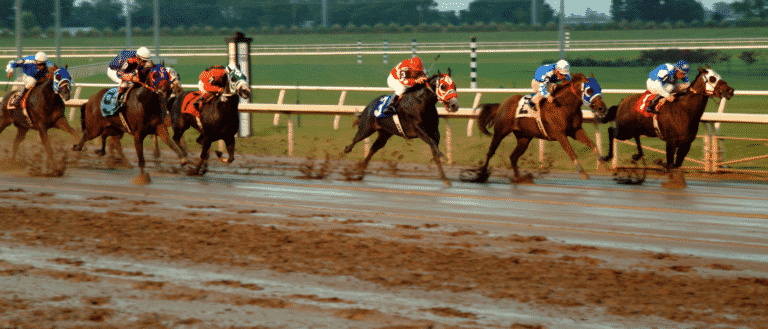After The Repeal Of PASPA: A Look Into The Future

Three years ago, the Supreme Court ruled the Professional and Amateur Sports Protection Act (PASPA) unconstitutional. The decision was historical and is proving to be one of the most pivotal moments in the history of gambling in the US.
This column will look at how PASPA has changed the US gambling landscape and examine the lessons learned and lingering unanswered questions.
PASPA, A Bigger Deal Than Anyone Thought?
The repeal of PASPA was a huge story, but three years later, it’s increasingly evident that it was more monumental than most people anticipated. With more than half of US states offering legal sports betting, it’s safe to say the repeal was a welcome event.
The speed with which legal sports betting has made inroads is stunning, but perhaps more stunning is the genuine lack of opposition to that progress, particularly on the online and mobile wagering front. In states struggling to legalize sports betting, it’s stakeholder squabbles that have derailed it, not anti-gambling sentiment.
That has a carry-on effect in that it pokes further holes in the long-held notion that gambling is a third-rail issue. From the spread of sports betting to gambling wins at the ballot box, all the evidence points to US residents seeing gambling as a revenue generator, and job creator that’s benefits outweigh its harms.
Granted, the COVID-19 pandemic helped sustain the early momentum throughout 2020 and likely led to many legislative wins that would have been losses pre-pandemic. That will likely continue throughout 2021, as states are still turning over couch cushions looking for whatever revenue scraps they can find.
Lessons Learned From The Fall Of PASPA
The fall of PASPA has led to several interesting revelations.
Sports Betting Is the Gateway to Online Casino Legalization
The early sports betting returns are impressive. The monthly handle is measured in the billions and revenue in the hundreds of millions.
But those numbers are juiced. Promo dollars are thrown around like confetti at a Super Bowl parade. That shows up in the tax revenue numbers reported in states that allow operators to deduct promotional spending.
So why are operators willing to run in the red in multiple states? The answer is three-fold:
- They’re trying to capture market share in hyper-competitive markets;
- The KPIs driving stock prices are related to users and revenue and not sustainability and profit; and
- The long-term goal is to turn sports bettors into casino players.
And it’s the last point that best explains what we’re witnessing and should cause some alarm bells to go off (more on that in the unanswered questions section).
The European Invasion
The US sports betting industry has certainly boosted US companies since the PASPA repeal, as European operators have struggled to compete with the homegrown companies. However, those same US companies have turned to Europe for their tech and their personnel. Comparing it to the British Invasion, the lead singer is from the US, but the band is European.
The reverse is true on the affiliate side, as massive foreign affiliate companies have gobbled up media assets packed with US-based content creators.
Unanswered Questions
Here are some of the remaining questions three years post-PASPA ruling.
COVID-19 Is the Wildcard
How sticky are the online gains?
A big reason online gambling firms had a great 2020 was the global pandemic that closed many land-based gambling venues and kept people confined to their homes for significant stretches.
There are arguments to be made that consumer attitudes have shifted towards online products. Still, there are also plenty of reasons to suspect people will revert to their prior gambling habits when COVID-19 is in the rearview mirror. There is even the possibility of people becoming less online for some time once they feel safe to venture out and interact with others.
The Honeymoon Period Can’t Last Forever
Is a crash coming?
The money spent acquiring sports betting products and sports betting adjacent assets is staggering. Even more staggering are the market valuations of sports betting companies and the ridiculous stock gains occurring every time a state even hints at legalization.
I find it hard to believe this will continue (I could be wrong, of course), and I wonder what the inevitable will be?
Who Are Operators Accountable To?
Who will operators be accountable to, their stockholders or the public?
At some point, these companies need to justify their spending. And as noted above, if the goal is to spend now to reap the rewards later (be it sports betting, casino, or both), that could very well lead to a slew of issues on the problem gambling front as sports betting and online casino legalization spreads.
Unfortunately, neither the preventative safeguards nor the funding for treatment is in place to deal with a massive influx of gamblers with unfettered access to anything and everything in the sun, from slot machines to poker tables, to in-play betting.
The only real hope on this front is for the industry to look across the Atlantic and see its future if it continues to hurtle down its current course. If they don’t begin to eye sustainability, there are only two potential outcomes:
- Government crackdowns that in some locales will make the EU policies look operator-friendly; or
- a severe rise in problem gambling and harm.
How soon the industry addresses this inevitable issue doesn’t matter now, but looking back in five or ten years it could very well be the most significant decision they make.






